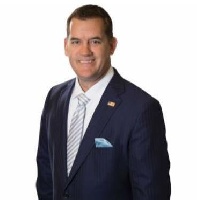Largo White Collar Crime Lawyer, Florida
Sponsored Law Firm
-
 x
x

Click For More Info:
-
The Law Offices of Richard L. Cooper, P.A.
848 Brickell Avenue Suite 800 Miami, FL 33131» view mapDWI/DUI, Drug Trafficking, Felony Nationally Ranked Top 40 Under 40
With Richard L. Cooper you can expect a trusted confidant who will work diligently to fully understand your case and determine a road map to help you regain control of your life.
800-756-2781
Todd Marks
✓ VERIFIEDWhite Collar Crime, Wills & Probate, Car Accident, Limited Liability Companies, Real Estate Other
Life is a Journey, sometimes you need an attorney. Call us Today we can help
Prior to forming the law office of Westchase Law, P.A. and Westchase Title, LLC in Tampa, Florida, C. Todd Marks attended the George Mason School of L... (more)
Timothy W. Weber
Lawsuit & Dispute, Employment, White Collar Crime, Civil & Human Rights
Status: In Good Standing
David Elbert Little
US Courts, White Collar Crime, RICO Act, Criminal
Status: In Good Standing Licensed: 14 Years
Jeffrey C. Blumenauer
Administrative Law, Civil Rights, White Collar Crime, Divorce
Status: In Good Standing

 Richard L. Cooper Miami, FL
Richard L. Cooper Miami, FL AboutMiami Attorney at Law
AboutMiami Attorney at Law ServicesCriminal Defense
ServicesCriminal Defense

